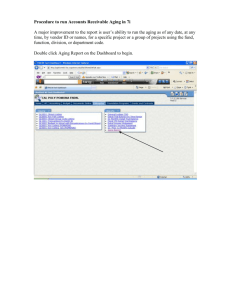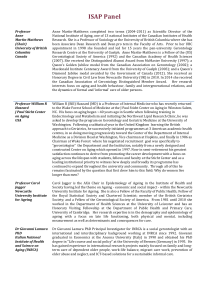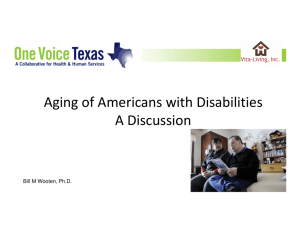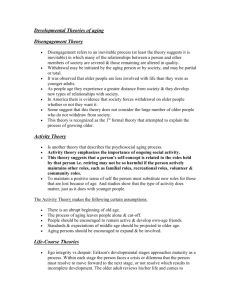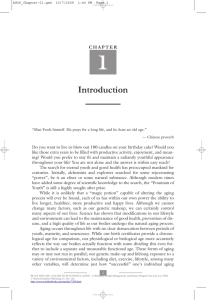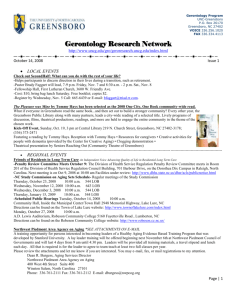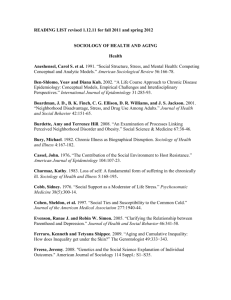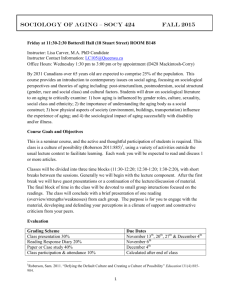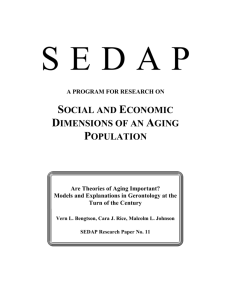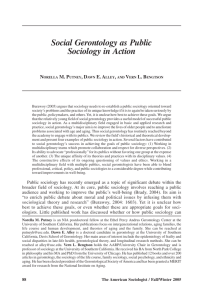Sociology of Aging - Tunxis Community College
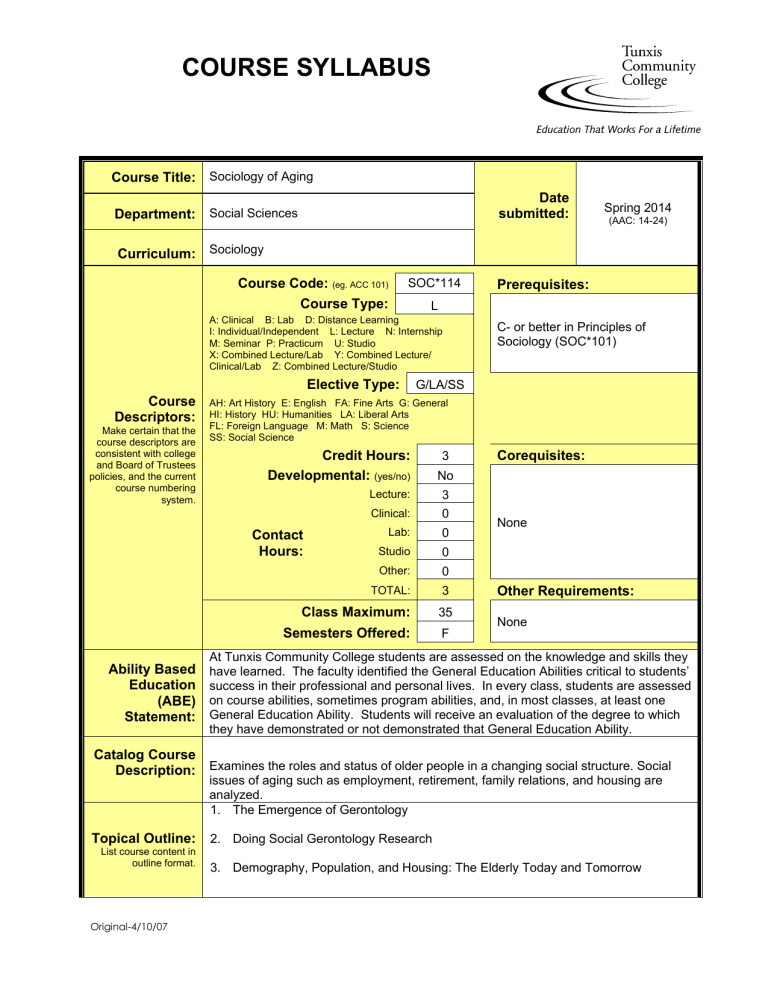
COURSE SYLLABUS
Course Title:
Sociology of Aging
Department:
Social Sciences
Date submitted:
Spring 2014
(AAC: 14-24)
Curriculum:
Sociology
Course
Descriptors:
Make certain that the course descriptors are consistent with college and Board of Trustees policies, and the current course numbering system.
Course Code:
(eg. ACC 101)
SOC*114
Course Type:
L
A: Clinical B: Lab D: Distance Learning
I: Individual/Independent L: Lecture N: Internship
M: Seminar P: Practicum U: Studio
X: Combined Lecture/Lab Y: Combined Lecture/
Clinical/Lab Z: Combined Lecture/Studio
Elective Type:
G/LA/SS
AH: Art History E: English FA: Fine Arts G: General
HI: History HU: Humanities LA: Liberal Arts
FL: Foreign Language M: Math S: Science
SS: Social Science
Credit Hours:
Developmental:
(yes/no)
Lecture:
Contact
Hours:
Clinical:
Lab:
Studio
Other:
TOTAL:
0
0
0
3
3
No
3
0
Class Maximum:
Semesters Offered:
35
F
Prerequisites:
C- or better in Principles of
Sociology (SOC*101)
Corequisites:
None
None
Other Requirements:
Ability Based
Education
(ABE)
Statement:
Catalog Course
Description:
At Tunxis Community College students are assessed on the knowledge and skills they have learned. The faculty identified the General Education Abilities critical to students’ success in their professional and personal lives. In every class, students are assessed on course abilities, sometimes program abilities, and, in most classes, at least one
General Education Ability. Students will receive an evaluation of the degree to which they have demonstrated or not demonstrated that General Education Ability.
Examines the roles and status of older people in a changing social structure. Social issues of aging such as employment, retirement, family relations, and housing are analyzed.
1. The Emergence of Gerontology
Topical Outline:
List course content in outline format.
2. Doing Social Gerontology Research
3. Demography, Population, and Housing: The Elderly Today and Tomorrow
Original-4/10/07
Sociology of Aging
COURSE SYLLABUS — page
4. Social Perspectives on Aging
2
6. Family Bonds and Social Bonds
7. Sexuality and Intimacy
8. Work, Retirement, and Leisure
9. Death, Dying, and Bereavement
Upon successful completion of this course, the student will be able to do the following:
COURSE:
1. explain the aging process
2. demonstrate increased personal awareness of the aging process
3. explain the impact of the aging of the population on society in general
4. explain the interdisciplinary study of gerontology
5. examine aging images held by self, others, and society, and the ramifications those images have for aging individuals and aging societies
6. describe and use theories of aging
7. discuss aging within an historical and cultural context
8. identify careers in the field of aging
Outcomes:
Describe measurable skills or knowledge that students should be able to demonstrate as evidence that they have mastered the course content.
PROGRAM:
(Numbering reflects Program Outcomes as they appear in the college catalog)
N/A
GENERAL EDUCATION: (Numbering reflects General Education Outcomes as they appear in the college catalog)
10. Social Phenomena - Students will develop an increased understanding of the influences that shape a
person’s, or group’s attitudes, beliefs, emotions, symbols, and actions, and how these systems of
influence are created, maintained, and altered by individual, familial, group, situational or cultural means.
Demonstrates : Accurately and sufficiently explains factors that influence and shape a person’s or group’s attitudes, belie f s, decisions, and actions.
Does Not Demonstrate: Inaccurately or insufficiently explains factors that influence and shape a person’s or group’s attitudes, beliefs, decisions, and actions.
Evaluation:
List how the above outcomes will be assessed.
Assessment will be based on the following criteria:
1. examinations
2. papers
3. quizzes
4. oral presentations
5. group projects
Original-4/10/07
Sociology of Aging
COURSE SYLLABUS — page 3
Instructional Resources:
List library (e.g. books, journals, online resources), technological (e.g.
Smartboard, software), and other resources (e.g. equipment, supplies, facilities) required and desired to teach this course.
Required: Smart board, computer access to the Internet
Desired:
Textbook(s)
Refer to current academic year printout.
Original-4/10/07

